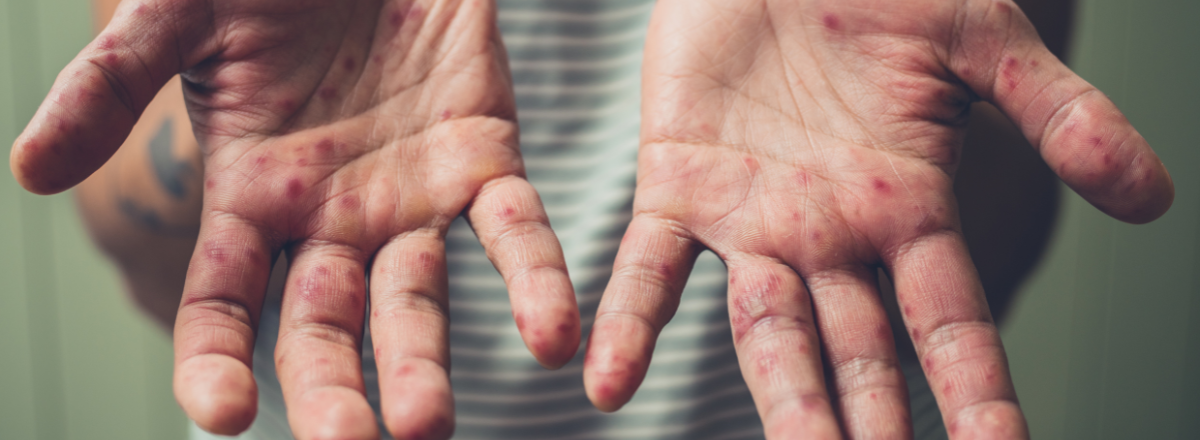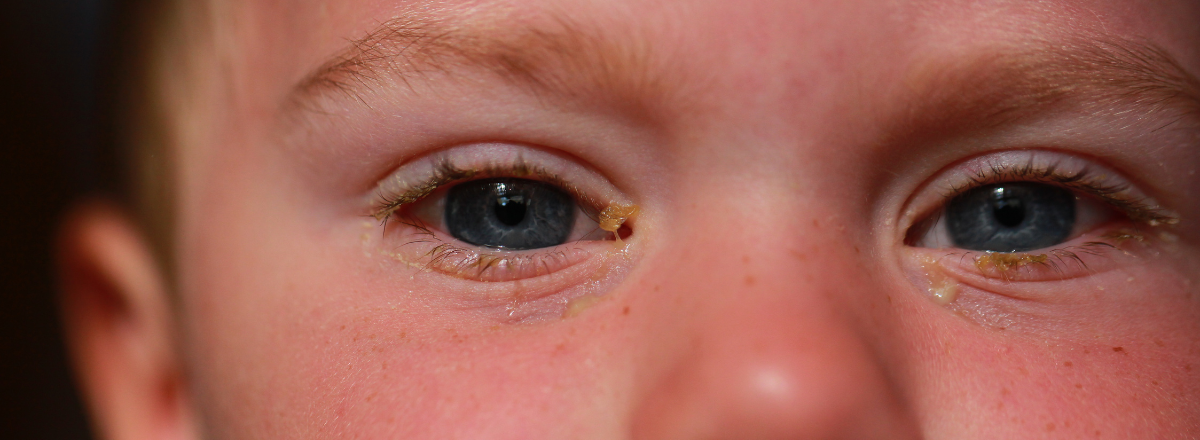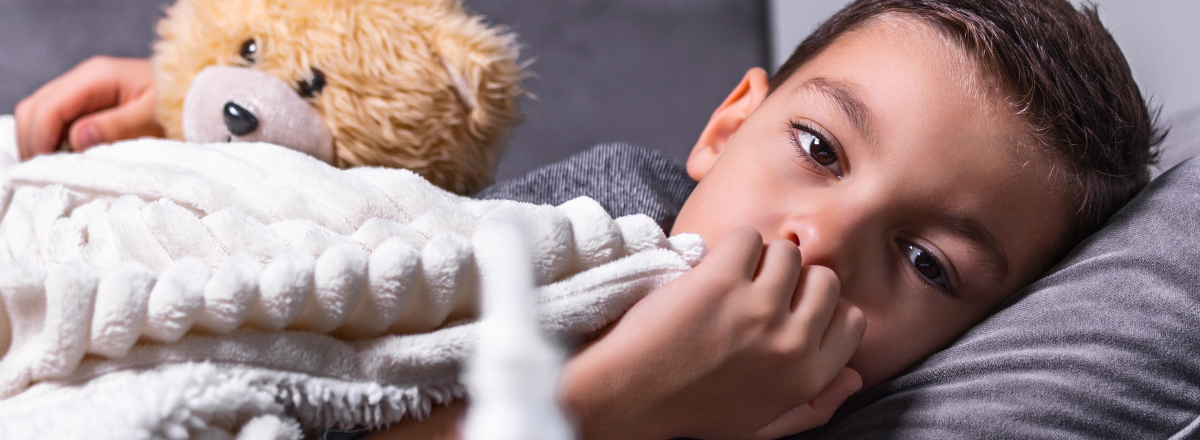With seasonal viruses continuing to do the rounds, COVID cases on the up, norovirus surges making the headlines and chickenpox season just around the corner, if your child is a bit off colour right now, it’s not all that surprising.
‘So much is still circulating and with kids’ immune systems impacted by relatively recent lockdowns and school closures, we’re seeing many children who’re getting one virus after another,’ says ZoomDoc’s Chief Medical Officer and dad of three, Dr Kenny Livingstone.
But when they’ve already missed so much school over the last few years, it can be tempting to send them in, regardless of symptoms.
‘Unfortunately, sickness and viruses can spread easily in classrooms where children sit close together in a fairly confined space, so it’s a good idea to keep kids off for specific illnesses until they’re well enough to be in,’ says Dr Kenny.
That said, there are lots of illnesses that don’t require any time off school – as long as your child is OK within themselves and feels well enough to get up, get dressed and go in.
Not sure when to keep your kids off? Follow our guide to the most common kids’ illnesses, including how long they need to be at home for, if at all!
Chickenpox
If your child hasn’t had chickenpox yet, chances are they will as it’s highly contagious. And when they do, they’ll definitely need to stay off school until all their spots have crusted over.
‘This is usually around 5 days after the spots first appear, but you’ll need to wait until there are no new spots and all of them have formed a scab, which can mean a good week or more off school,’ says Dr Kenny.
Remember, it’s likely to spread to anyone in your household who’s not had chickenpox yet, usually siblings, so just as one goes back to school, you could have another off for a week.
But the good news is they’ll only get it once.
Find out more about the signs, symptoms and treatment for chickenpox
Conjunctivitis
This contagious eye infection causes itchy and sometimes gunky eyes but the good news is, there’s no need to keep kids off school with it.
‘If it’s bothering them or gets worse, make sure you see a doctor as they may need an antibiotic eye drop prescribed. But there are lots of over-the-counter drops suitable for kids that you can get from a pharmacist,’ says Dr Kenny.
NHS advice says to avoid touching the eye and keep hands clean by washing them regularly.
Coughs and colds
Coughs and colds are everywhere right now, but that’s not a bad thing. ‘Kids need colds to help them build up their immune systems,’ says Dr Kenny. In fact, some paediatricians will tell you anywhere between 8–12 colds a year is the ideal! The good news is, if it’s ‘just’ a cold there’s no need to keep your child off school.
That means if they have a runny nose, are sneezing and coughing but seem well in themselves, you should send them in. ‘Just ask them to wash their hands regularly and throw tissues away, once they’ve used them,’ says Dr Kenny.
However, if they have cold-like symptoms and a fever, NHS guidance is to keep them off school until the fever goes.
Read more about how to help that hacking cough
COVID
The days of testing for COVID are behind us, thank goodness, but the virus is still very much with us. Due to vaccines, we’ve been able to get back to normality, with no further school closures since 2021. But with COVID still so contagious, should we be keeping our kids off if we suspect they have it, or actually have it confirmed by testing?
‘There’s no need to keep kids off with COVID anymore, whether suspected or confirmed by testing – particularly if they’re symptom-free. But, if they are unwell with it, have unpleasant symptoms such as a bad cough, fatigue and have a fever, they should stay off school until they feel better,’ says Dr Kenny.
Fevers
If your child has a high temperature (fever) it’s a good idea to keep them off school.
‘Not only can they make kids feel quite unwell, they’re a sign that their body is fighting off something so letting them rest can help them get better quicker,’ says Dr Kenny.
A high temperature is anything over 38C in children. If your child has one, as well as keeping them off school, the NHS recommends:
- giving them plenty of fluids
- looking out for signs of dehydration
- giving them food if they want it
- checking on them regularly during the night
- giving them either paracetamol or ibuprofen if they’re distressed or unwell – check the packaging or leaflet to make sure the medicine is suitable for your child, or speak to a pharmacist or doctor if you’re not sure
- getting medical advice if you’re worried about them
- trying to keep them at home and avoiding contact with other people until they don’t have a high temperature.
‘If your child’s fever doesn’t come down with medicine and they seem unwell, have a stiff neck or any other concerning symptoms, call a doctor, 111 or 999 in an emergency,’ says Dr Kenny.
Flu
Hopefully most children will have been vaccinated against getting the flu, helping them to avoid it completely, or get milder symptoms at least.
But if they do get the flu, which is far worse than a cold, they’ll most likely be too unwell for school.
‘The flu tends to come on quicker than a cold with a fever as well as other symptoms like earache, chills, muscle aches and loss of appetite. If your child has the flu they’ll need rest, hydration and regular paracetamol to bring down a high temperature,’ says Dr Kenny.
Hand, foot and mouth

Hand, foot and mouth disease is a common infection that causes mouth ulcers and spots on the hands and feet.
Hand, foot and mouth is a common childhood illness that can cause a fever, sore throat, mouth ulcers and a raised rash or blisters on the hands or feet. It usually gets better on its own, within 7–10 days and unless your child is unwell with it, there’s no need to keep them off school even with spots or blisters.
‘If your child is unwell with it, especially after 7–10 days, call your doctor,’ says Dr Kenny.
Head lice
If you regularly get a school letter warning of a head lice or nits outbreak in your child’s class, you’ll also know that – thankfully – there’s no need to keep kids off.
‘The key is to wet comb their hair and if that doesn’t work, use a medicated lotion or product to get rid of them,’ says Dr Kenny.
Here’s how to get rid of your child’s head lice
Norovirus
Every parent dreads hearing that kids in their child’s class are off school with a sickness bug. Norovirus can sweep round schools causing vomiting and diarrhoea, which can then affect your whole household. That’s why it’s crucial to stick to NHS guidance if your child comes down with it, which says:
‘Children with diarrhoea or vomiting should stay away from school until they have not been sick or had diarrhoea for at least 2 days (48 hours).’
You’d be pretty cross if someone else didn’t stick to this rule so make sure you don’t send your child in until they’re fully over it.
‘As nasty as norovirus can be, kids do recover pretty quickly but a couple of days off school can stop it spreading around their friends, their entire class or even the whole school,’ warns Dr Kenny.
Norovirus: what it is and when to call the doctor
Strep A

Strep A in kids – a relatively common bacterial infection that causes sore throats and scarlet fever
With Strep A in the headlines after a concerning rise in cases amongst children towards the end of 2022, guidance remains to be vigilant if your child has a sore throat, fever and rash.
‘If a child’s unwell with any of these, it’s a good idea to speak to their doctor in case they need antibiotics for Strep A or related illness, such as scarlet fever or tonsillitis,’ says Dr Kenny.
Current guidelines state that any child taking antibiotics for a Group A Strep infection ‘should not return to nursery or school until at least 24 hours after starting treatment with an appropriate antibiotic.’
What is Strep A and should I be worried?
If you’re concerned about your child and can’t get hold of a doctor when you need to, you can always talk to a ZoomDoc GP via our app.








